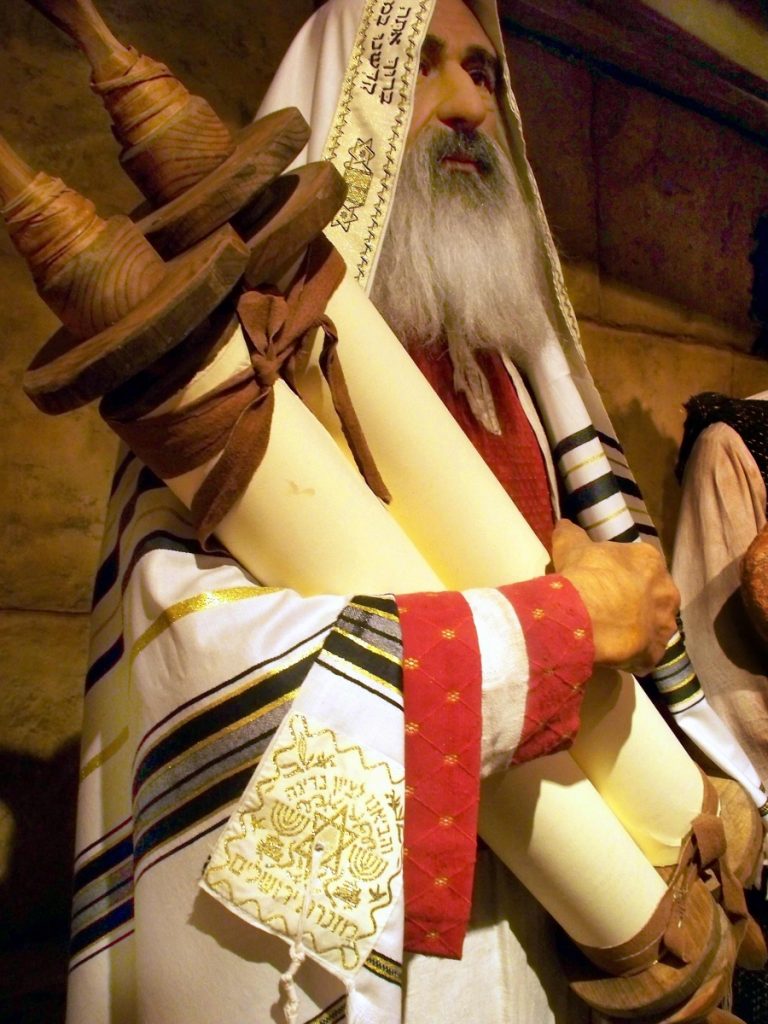Dvar Torah for Parshat Matot

Dvar Torah for Parshat Matot
Based on Likutey Halakhot, Sheluchin 5:17
“Moshe spoke to the Israelite tribal heads, saying: ‘This is the word God has commanded’” (Numbers 30:2). Rashi comments that when any mitzvah was introduced, the tribal heads had the privilege to be the first to learn about it, directly from Moshe Rabbeinu. Rashi also tells us that Moshe Rabbeinu’s prophecy was qualitatively different—and greater—than that of all of the other prophets.
There’s no doubt that there is a spiritual hierarchy in Judaism. Some Jews are born with more potential, some Jews use their potential better than others use theirs and some Jews serve more public and/or more prominent roles that others. Of all the Jews that make optimal use of their potential, there is only one, at any given time, who is the tzaddik hador,* the leading tzaddik of the generation, who guides the Jewish people and determines what is the best way for them to fulfill their role in bringing God’s creation to its tikkun.
I’m often asked, “Who is the tzaddik hador?” Why people think I know, I don’t know. Why they think I would tell them just because they asked, I also don’t know! And if I knew, wouldn’t I already have told them—and the rest of the world too? Well, this last question has a simple answer: Nobody would listen. After all, nowadays, doesn’t everyone claim that his rebbe is the one? So many false claims are made that the true get ignored, and lost. So why should I waste my breath?
Many people want to know who the tzaddik hador is because they understand that Jewish success depends on getting the right guidance. Certainly extraordinary situations call for a Moshe-like tzaddik who can enter the fog (Exodus 20:18) to receive Torah, teaching. Even ordinary life needs advice so that mitzvahs don’t became stale acts or ceremonies.
But who is it? Where to find him? Where to begin to look?! Even before we start to look, there are factors to consider. First of all: we are flawed. We get angry, we get lazy and careless. Sometimes we exert self-control; sometimes not. Too often our self-control ends on the outside. Our inner thoughts, even when consistently holy, waver, unable to determine proper goals and strategies for improving our Jewishness. Nu? How are your eyes? Would you recognize the tzaddik hador if you were staring him in the face?
Secondly, ask your self if you are ready to undergo the long, seemingly interminable search to find the tzaddik hador? Are you willing to face the hunger, sleeplessness, poverty and shame that often accompany a person on this search? Are you willing to do so even if you might not ever find him? Life in this world is not a fairy tale. It doesn’t always have a happy ending.
Finally (for now), are you willing to pay the price of finding the tzaddik hador? Once you know who it is and begin to learn his teachings—there’s no turning back. You have a responsibility to do your best to absorb and live by the teachings, even if you’ll never comprehend their significance or how they work. In Hebrew, we call this naaseh v’nishma (we will do and we will understand).
Why is it so difficult to discover the tzaddik hador? I don’t know. But you know the Breslov battle-cry: NEVER DESPAIR! The search itself improves you, undoes many of your mistakes and removes many of your faults. It adds an undeniable degree of sanctity to your life, your being and the world around you. And you will find teachers, good ones and better ones, people who are authentic and sincere, solid and balanced, with genuine emunah, kedushah and chokhmah (faith, holiness and wisdom). Until the day you find the tzaddik hador, it is through such teachers that you receive his kedushah—if you really, really search and seek it.
agutn Shabbos!
Shabbat Shalom!
© Copyright 2011 Breslov Research Institute
*Pronounced ha (like a laugh) and door, the thing the last animal in the barn doesn’t close.